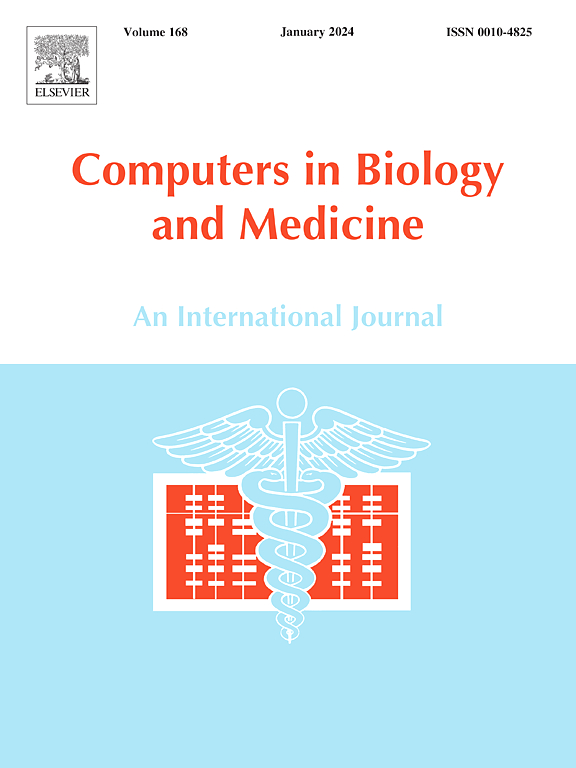Unveiling the associations between self-reported morbidities and the constitutional-Chinese medicine questionnaire in the Taiwan Biobank: A cross-sectional association study
IF 6.3
2区 医学
Q1 BIOLOGY
引用次数: 0
Abstract
Constitutional medicine was a transition from evidence-based medicine to precision medicine following the origin of Chinese medicine. The Constitutional CM Questionnaire (CM-CQ) commonly considers the various phenotypes observed as phenomes. However, the comprehensive associations between diseases and the phenotype of the questionnaire remained uncertain. Using the Taiwan Biobank pilot data, we conducted a community-based cross-sectional study of approximately 10,000 people. We separately evaluated the associations between general self-reported diseases and 44 items of CM-CQ questions using the binomial logistic regression model. Some chronic diseases must be predicted or shown to be associated with the self-declared condition of some CM-CQ questions with significant associations (Bonferroni adjusted p-value equal to 0.001) of all CM-CQ pre-existing diseases. Each CM-CQ question from Taiwan Biobank has shown a less significant overall effect on each disease, and the probability ratios generally approach a risk of less than two times. In addition, some diseases such as high blood pressure, gout, and diabetes, especially these common diseases, show increasing trends in the importance threshold and probability ratios (more than twice the risk). CM-CQ is regarded as an alteration in Chinese medical clinical characteristics. The final response concluded that biological databases provided evidence to clarify the association between Chinese medicine, different forms of illness, and the self-declared diseases of modern medicine, and the risk of diseases was assessed separately through each question. The exploratory questionnaire and self-reported conditions for the Chinese Medicine initiative clarified the associations between biobanks and community studies.
揭示台湾生物库中成药问卷与自我报告发病率之关系:横断面关联研究
体质医学是中医起源后由循证医学向精准医学的过渡。体质CM问卷(CM- cq)通常将观察到的各种表型视为现象。然而,疾病与问卷表型之间的综合关联仍然不确定。利用台湾生物库试点数据,我们进行了一项以社区为基础的横断面研究,涉及约10,000人。我们分别使用二项logistic回归模型评估一般自述疾病与CM-CQ问题44项的相关性。某些慢性疾病必须被预测或显示与某些CM-CQ问题的自我声明状况相关,并且与所有CM-CQ先前存在的疾病有显著关联(Bonferroni调整p值等于0.001)。台湾生物库的每个CM-CQ问题都显示出对每种疾病的总体影响不太显著,概率比通常接近风险的两倍以下。此外,一些疾病,如高血压、痛风、糖尿病,特别是这些常见疾病,在重要阈值和概率比(风险的两倍以上)上显示出增加的趋势。CM-CQ被认为是中医临床特征的改变。最终的答复是,生物数据库提供了证据,阐明了中医、不同形式的疾病和现代医学自我宣称的疾病之间的联系,并通过每个问题分别评估了疾病的风险。中医药倡议的探索性问卷调查和自我报告条件澄清了生物库与社区研究之间的联系。
本文章由计算机程序翻译,如有差异,请以英文原文为准。
求助全文
约1分钟内获得全文
求助全文
来源期刊

Computers in biology and medicine
工程技术-工程:生物医学
CiteScore
11.70
自引率
10.40%
发文量
1086
审稿时长
74 days
期刊介绍:
Computers in Biology and Medicine is an international forum for sharing groundbreaking advancements in the use of computers in bioscience and medicine. This journal serves as a medium for communicating essential research, instruction, ideas, and information regarding the rapidly evolving field of computer applications in these domains. By encouraging the exchange of knowledge, we aim to facilitate progress and innovation in the utilization of computers in biology and medicine.
 求助内容:
求助内容: 应助结果提醒方式:
应助结果提醒方式:


